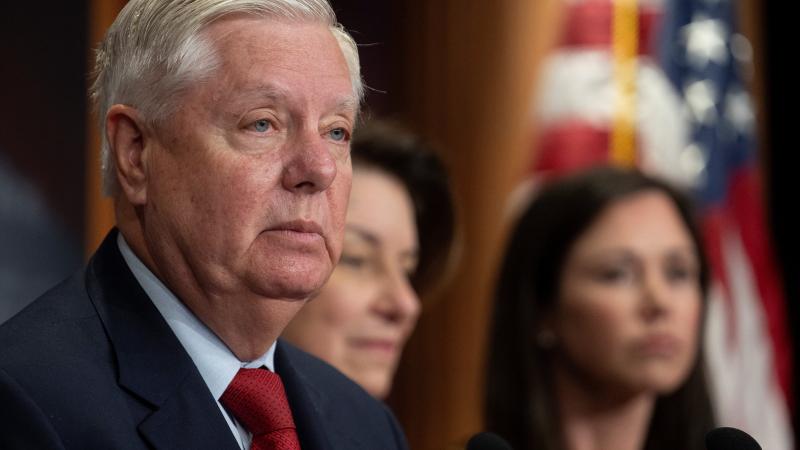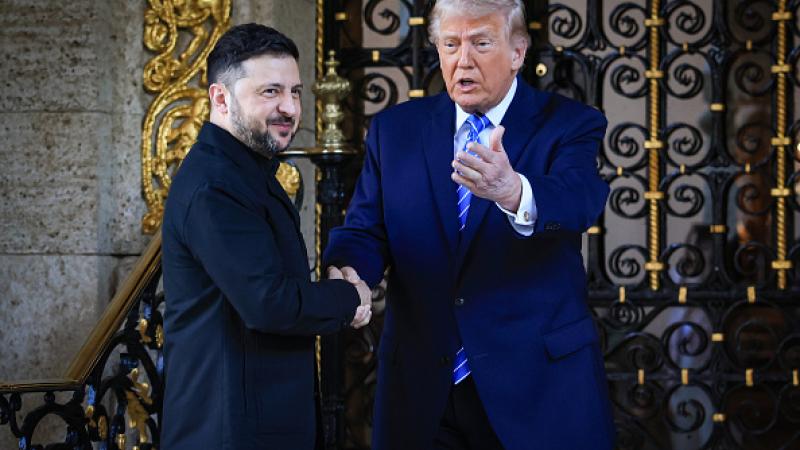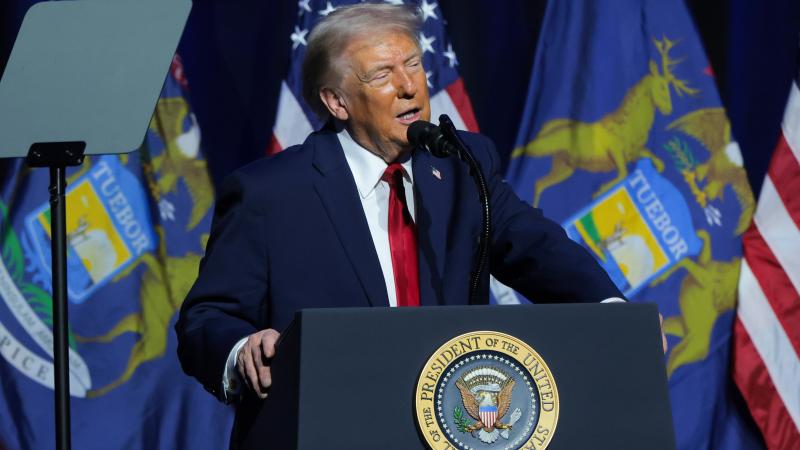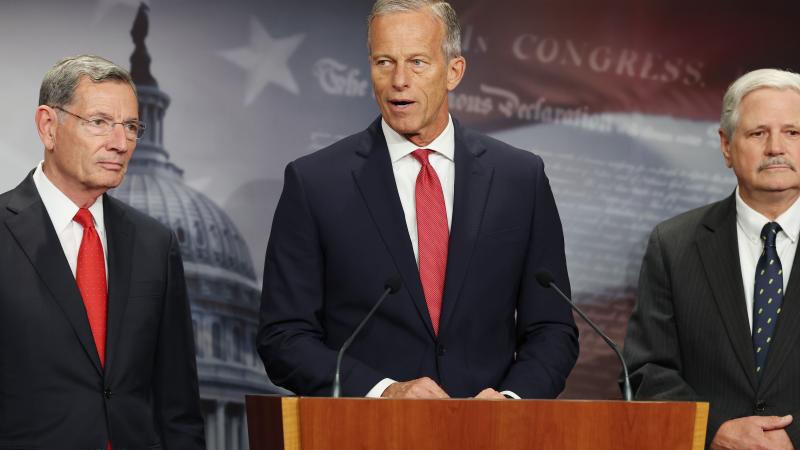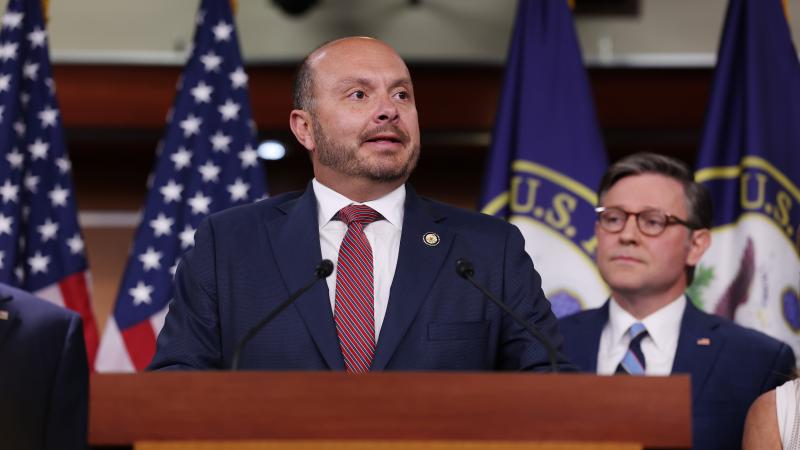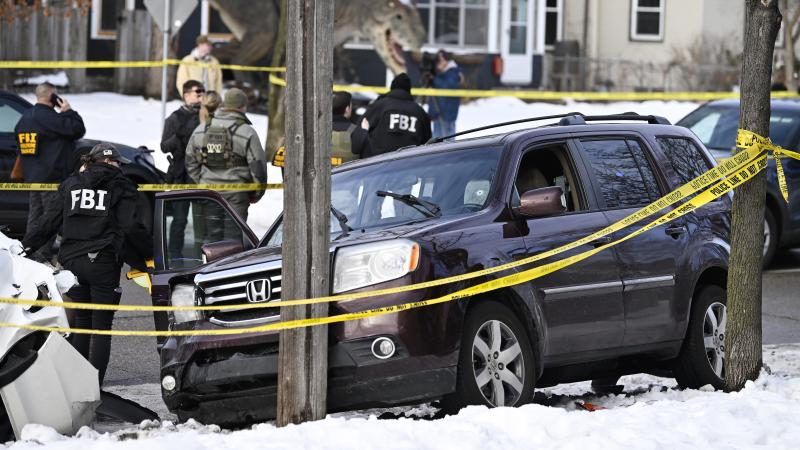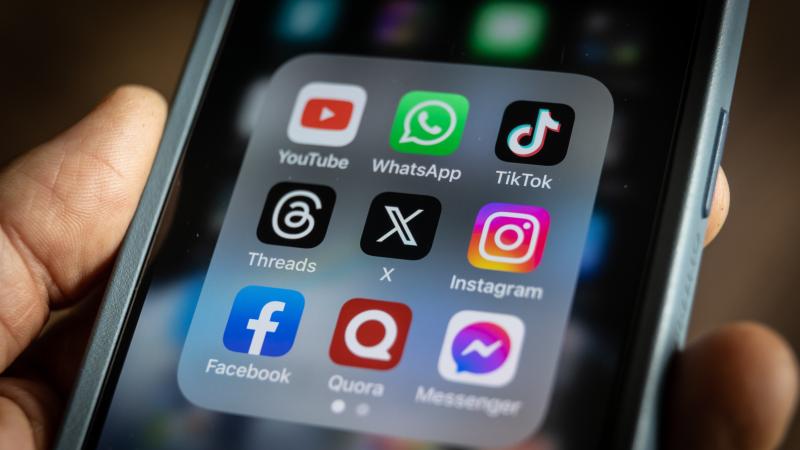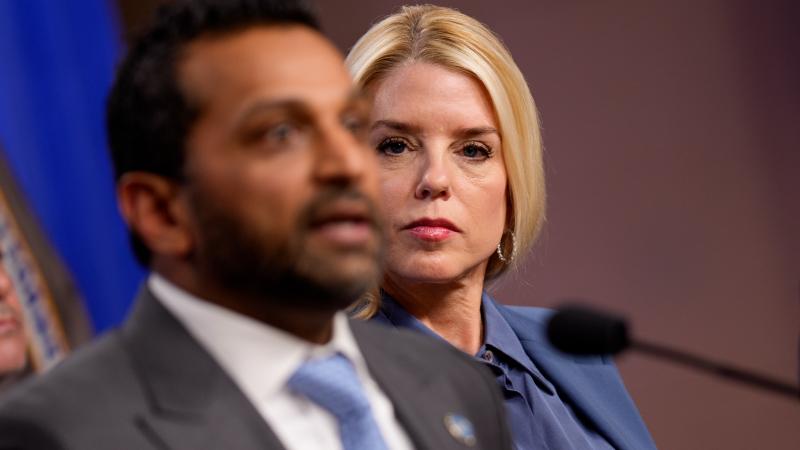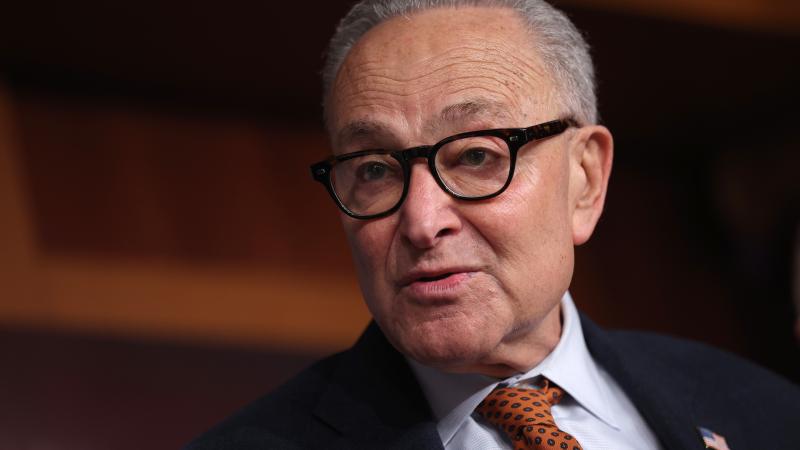Kremlin says U.S. interfered in Russian affairs by condemning harsh tactics over Navalny protests
The dispute was the second in less than a week, following the inauguration of Joe Biden as president.
Moscow's relations with the Biden administration continued their testy start over the weekend, as the Kremlin accused the United States of encouraging protests against Russia's treatment of jailed opposition activist Alexei Navalny.
The protests demanding Navalny's release were held in more than 100 cities throughout Russia on Saturday, drawing tens of thousands of people into the streets in subzero weather. The U.S. Embassy tweeted support for peaceful protest, and warned Americans to avoid specific demonstration sites — drawing ire from Moscow.
"Obviously, these are misleading publications," Kremlin spokesman Dmitry Peskov said in a Jan. 24 interview on Russia's state-run Rossiya-1 television channel. "And, naturally, they are an absolute interference into our domestic affairs."
Navalny was arrested earlier this month when he returned to Moscow after convalescing for months in Germany from being poisoned with a nerve agent while traveling. Navalny accused Moscow of administering the nerve agent, Novichok. Moscow has denied the accusation, and has alleged that the Kremlin critic works with the CIA.
Navalny has emerged as a cause celebre in Russia, where supporters rallied to support him on Saturday despite threats of themselves being arrested.
The U.S. Embassy last week warned Americans to steer clear of the demonstrations, citing possible trouble with Russian authorities.
"Given the likely substantial police presence and possible dispersal of demonstrators into other areas of the cities, U.S. citizens should avoid these demonstrations and any demonstration related activities," the embassy posted on its website. The embassy noted specific times and locations for demonstrations in 12 cities.
On Saturday, amid reports that protesters clashed with police and thousands were arrested, the State Department denounced Russia's methods.
"The U.S. strongly condemns the use of harsh tactics against peaceful protesters and journalists in Russia today," spokesman Ned Price wrote on Twitter. "We call on Russia to release those detained for exercising their rights, including Aleksey Navalny, and to credibly investigate his poisoning."
Price expanded on those comments in an official U.S. government statement.
"Prior to today’s events, the Russian government sought to suppress the rights to peaceful assembly and freedom of expression by harassing protest organizers, threatening social media platforms, and pre-emptively arresting potential participants," Price wrote on the State Department website. "This follows years of tightening restrictions on and repressive actions against civil society, independent media, and the political opposition."
The statements from the U.S. can be viewed as "direct support to violations of the Russian laws, support to unauthorized actions," Peskov said in his Rossiya-1 interview.
The Foreign Ministry on Facebook underscored Peskov's complaints, and signaled an official protest to come.
"The attempts of American diplomacy, which ignores all decency, actually incite radical elements, are doomed to fail and will have negative consequences for bilateral relations," the ministry wrote. "The leadership of the US Embassy will have a serious conversation in the Ministry of Foreign Affairs of Russia."
The dispute was the second in less than a week, following the inauguration of Joe Biden as president.
Moscow on Tuesday threatened a tit-for-tat response over disconnected phone lines at the Russian Consulate in New York, sending a diplomatic note demanding that the U.S. State Department reinstate service. The State Department told Moscow to address the problem directly with the phone company.
Foreign ministry spokesperson Maria Zakharova hinted at reciprocity, but did not specify what that might entail.
